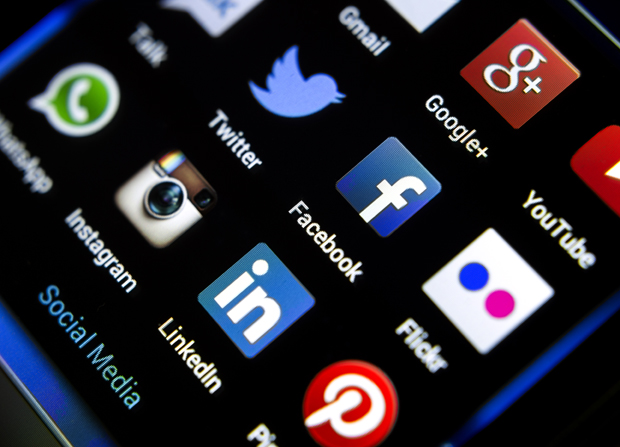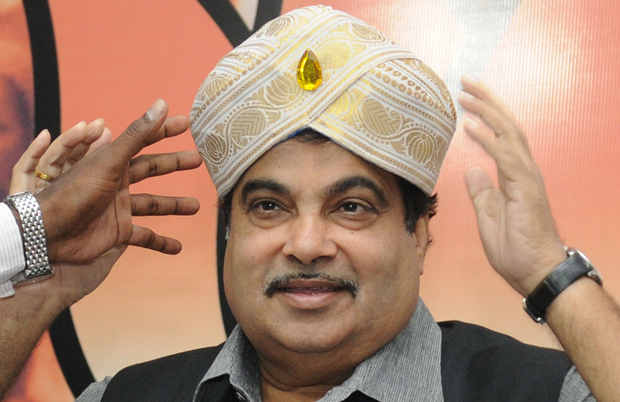10 Jul 2014 | Europe and Central Asia, Ireland, News

(Image: Quka/Shutterstock)
A recent court ruling in Ireland could have reintroduced the concept of criminal libel to the state, despite criminal defamation offences being abolished as recently as 2009.
The case itself was one of a particularly grim relationship break up. Names are not available as the people involved were also locked in a criminal case in which the male partner was accused of rape and false imprisonment, though he was acquitted of both.
But the details available are: couple breaks up in January 2011. They remain in touch. In April 2011, man goes to woman’s house to, according to the Irish Times’s report “confront her over a perceived infidelity”. Man later leaves woman’s house, but not before stealing her phone. Man goes through woman’s messages, which suggest she has started a new relationship. Man opens woman’s Facebook on phone and posts remarks from her account, making it appear that she is presenting herself as a “whore” who would take “any offers”. Drink was a factor, as the Irish court reporting phrase goes.
This action led to a charge under the Criminal Damage Act 1991, under which “A person who without lawful excuse damages any property belonging to another intending to damage any such property or being reckless as to whether any such property” can find themselves liable to a large fine and up to 10 years in prison.
In this case, the defendant was found guilty and fined €2,000.
The judge, Mr Justice Garrett Sheehan, is reported to have asked how to assess the “damage” when nothing had actually been broken. Prosecutors replied that the case was in fact more akin to harassment and that the “damage” had been “reputational rather than monetary”.
The first question here is obvious: if the facts of the case were more akin to harassment, then why were charges not brought under Section 10 of Ireland’s Non-Fatal Offences Against The Person Act, which would cover anyone who “by his or her acts intentionally or recklessly, seriously interferes with the other’s peace and privacy or causes alarm, distress or harm to the other”? Wouldn’t this be the obvious piece of legislation to use?
But after that, there are a few more: Who actually owns a Facebook profile? And does reputation count as property? And crucially, has Mr Justice Sheehan created a criminal libel law?
Ireland has a complicated relationship with social media. On the one hand, to be plain about it, the big online companies create a lot of employment in Ireland. Facebook, Twitter and Google all employ a lot of people in the country. On the other hand, it is susceptible to the same moral panics as anywhere else, and in a small, largely homogenous country, panics can be enormously amplified.
When government minister Shane McEntee committed suicide in Christmas 2012, the tragic story somehow became conflated with social media and online bullying. McEntee’s brother blamed the minister’s death on “people downright abusing him on the social networks and no names attached and they can say whatever they like because there’s no face and no name”. But his daughter later refuted that claim, saying: “Dad didn’t use Twitter and wasn’t a huge fan of Facebook. So I don’t think you can blame that and I’m not going to start a campaign on that.”
The subsequent debate on social media bullying was almost tragic in its simplicity, the undisputed highlight being Senator Fidelma Healy-Eames describing to the Parliamentary Joint Committee on Transport and Communications how young people are “literally raped on Facebook”.
As ever in discussions that involve social media, a generation gap opens up, or is invoked, between younger “natives” who supposedly instinctively understand the web, and a political and judicial class who are apparently hopelessly out of touch. There is certainly an element of truth to this (I have sat in courts and watched judges express utter bafflement at the very concept of Twitter), but in general, what is actually happening is legislators, magistrates and the judiciary are desperately trying to apply existing, supposedly universal laws to phenomena to which they are simply not suited. This is where controversy usually arises, for example in the UK’s use of public order laws when the only threat to public order is a Twitter mob — as in the case of jailed student Liam Stacey; or use of laws against menacing communications in instances where it’s clear no menace was intended — such as Britain’s now infamous Twitter Joke Trial.
In the current Irish case, it seems obvious that harassment would have been the more relevant charge, but in this instance, that’s not what we have to worry about. The real concern is that by apparently putting reputation in the category of property which can suffer damage, the court has now created a precedent where damage to a person’s reputation, whether by “fraping”, tweeting, or even just the getting facts wrong in a news story, could lead to criminal sanction.
And the very worst thing is that no one seems to have noticed.
From the introduction of the new blasphemy law onward, Ireland has seen a slow, stealthy erosion of free speech. It’s not clear what will get people to start paying attention, but the country needs to be more vigilant.
This article was posted on July 10, 2014 at indexoncensorship.org
29 May 2014 | India, News, Politics and Society

Nitin Gadkari, a politician with a chequered, if not dubious record of integrity and probity, had a political opponent arrested for slander. (Photo: Amit Kumar/Demotix)
Once, President Lyndon Johnson was caught in the crossfire of an anti-Vietnam war protest. A placard was shoved in his face: “LBJ pull out, like your daddy should have done.” Sure, LBJ got the pun, as would have Anthony Weiner in our present times, but he remained unperturbed. Consider Lady Violet Bonham Carter’s biting repartee to an irresolute Sir Stafford Cripps, saying he “has a brilliant mind — until it is made up”.
Mordant wit is what makes politics and political debates sparkle with brilliance, besides deflating windbags and putting stuffed shirts in their place. Even if the “sourcasm” is discounted, plainspeak and no-holds barred verbal duels contribute in no small measure to ensuring accountability, for who isn’t mortally petrified of lacerating criticism?
Turns out that in India, folks with brittle egos and skeletons stacked up in their closets, can and will wield the law to clam a critic’s mouth shut, and even have them put in jail. And this is irrespective of resorting to some risqué puns.
Arvind Kejriwal, founder of the Aam Aadmi (Common Man) Party, who is out on a limb to eradicate the scourge of corruption, realised this to his peril when Nitin Gadkari, a politician with a chequered, if not dubious record of integrity and probity, had him arrested for slander. Slander? No, Gadkari wasn’t invoking some law of the Middle Ages or the Victorian Era. He was merely invoking Sections 499 and 500 of the Indian Penal Code which criminalise defamation, both in writing as well as verbal statements. Kejriwal called Gadkari “corrupt” because not very long ago, the latter did come under the scanner for alleged massive illegalities in his business dealings, but managed to wriggle out since no legal investigation or prosecution were launched.
These two provisions are so broad in scope that every insinuation, unless proved to have been made in “good faith”, can land someone in prison. Someone like Kejriwal, who was incarcerated for six days until he was let out on bail yesterday. Now how does one prove “good faith”, that too, “beyond reasonable doubt”, since that remains the standard of proof in criminal law? Worse, a person can be taken into custody even while this seemingly Herculean task is getting done.
As if criminalisation of libel isn’t bad enough, punishing “slander” grants almost instant impunity if one is strategic enough. Take Kejriwal’s example, again. In October and November last year, he addressed a press conference and read out from a list of charges against business tycoon Mukesh Ambani. The businessman lost no time in slapping legal notices against every television channel which broadcast the conference. Libel chill, without a shred of doubt, for all the channels went silent. Whether Ambani’s fleece is as white as snow isn’t the question; his dark deeds of pulverising criticism are, and deserve the most trenchant critique.
It is encouraging to note that already demands are being made for decriminalising libel, but unless slander is banished from the statute books, dangers would continue to lurk. The Law Commission of India has taken a laudatory and timely step by releasing a consultation paper which seeks to unshackle the media from apprehensions of libel chill. But what happens to individuals — political activists, or whistleblowers? A possible solution lies in Gertz v. Robert Welch, Inc. wherein the Supreme Court of the United States extended the Sullivan privilege (named after the legendary NYT v. Sullivan case) — that only statements made with naked malice or reckless disregard for the truth shall be held as defamatory — available to media houses, to certain categories of individuals also. Those “seeking governmental office” and those who “occupy positions of such persuasive power and influence that they are deemed public figures for all purposes” were accorded protection. Recently, this has been adopted in international money laundering law of PEPs or Politically Exposed Persons. It includes, “individuals who are or have been entrusted domestically with prominent public functions, for example, heads of state or of government, senior politicians, senior government, judicial or military officials, senior executives of state-owned corporations, important political party officials”.
Back in 2011, the UNHRC (United Nations Human Rights Committee) issued a declaration condemning Philippines’ provisions of criminal libel as a violation of the ICCPR. One hopes India wouldn’t require such a slap on the wrists to amend the repugnant law which rewards dishonest claims of calumny.
This article was published on May 29, 2014 at indexoncensorship.org
9 Aug 2012 | Europe and Central Asia, Index Index, minipost
Two Italian journalists have been sentenced to four months in prison and fined 15,000 Euros (11,700 GBP) for libel. Orfeo Donatini and Tiziano Marson, of newspaper Alto Adige, were convicted in June of alleging in a 2008 article that local politician Sven Knoll had taken part in a neo-Nazi summit. The claim was based on a police report and appeared in weekly magazine L’Espresso. Knoll lodged a criminal defamation complaint, and although the journalists were acquitted, the case was reviewed by the court of cassation and referred back to the Bolzano city tribunal. In a statement, press freedom organisation Article 19 said criminal defamation provisions in Italy’s Penal Code were “incompatible” with international standards of freedom of expression.
3 Apr 2012 | Index Index, minipost
A Peruvian appeals court has overturned a criminal defamation conviction against a journalist who reported on local corruption. The court found that the decision against radio journalist Teobaldo Meléndez Fachín contained “substantial errors” in the earlier conviction. The journalist was given a three year suspended sentence and a fine of around US $11,000, after reporting that a local mayor had misused a government loan of over US $2m. Fachín reported that local mayor Juan Daniel Mesía Camus used the loan for projects which benefited his political allies.


